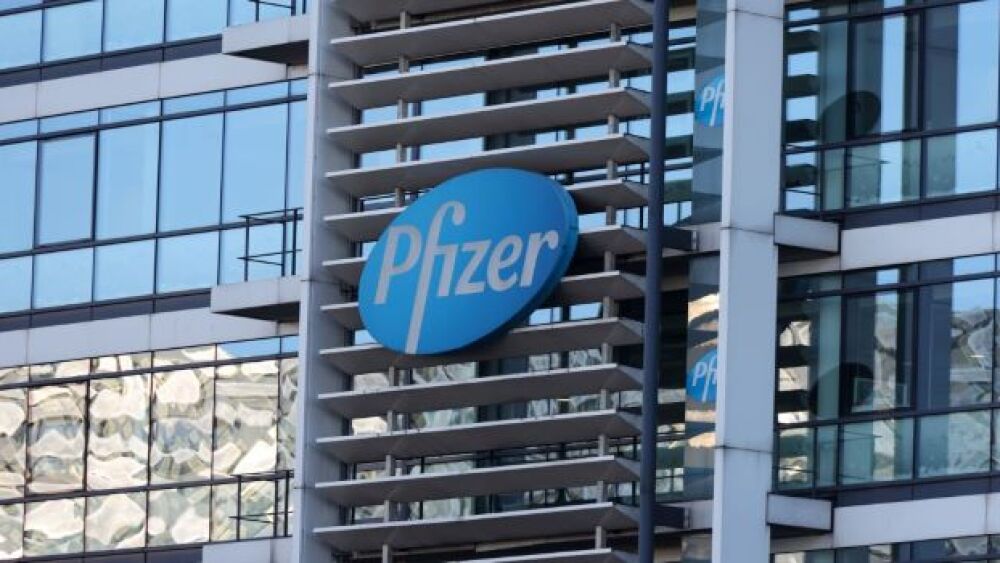Pfizer announced Monday that it is acquiring the hematology-focused company for $5.4 billion in order to bolster its presence in the multi-billion dollar rare disease market.
Pierre Suu/Getty Images
Shares of Global Blood Therapeutics (GBT) continue to surge in premarket trading after Pfizer officially announced it was acquiring the hematology-focused company for $5.4 billion in order to bolster its presence in the multi-billion dollar rare disease market.
Rumors about the acquisition began to swirl late last week, with Pfizer being pegged as the suitor by unnamed sources familiar with the matter. This morning, the pharma giant, fueled with massive amounts of revenue from its COVID-19 vaccine sales, said it planned to acquire the South San Francisco-based company in order to bolster its presence in rare hematological diseases. GBT’s lead product is Oxbryta (voxelotor), a therapeutic for sickle cell disease (SCD) first approved in 2019. In 2021, Oxbryta generated $194.7 million. That amount is set to grow following several international approvals for the drug.
In its announcement Monday morning, Pfizer said the acquisition will enable it to “address the full spectrum of critical needs in the underserved sickle cell community.” With its global reach, Pfizer said it aims to significantly expand the availability of Oxbryta to global communities where SCD is most prevalent. An inherited blood disorder, SCD tends to impact those whose ancestors are from sub-Saharan Africa.
However, the disease is also common in people of Hispanic, South Asian, Middle Eastern and Southern European descent. Pfizer said there are approximately 4.5 million people living with sickle cell disease across the globe, and more than 45 million people living with the sickle cell trait.
Pfizer Chief Executive Officer Albert Bourla expressed his excitement about the deal and the impact it will have on the global SCD community.
“Sickle cell disease is the most common inherited blood disorder, and it disproportionately affects people of African descent. We are excited to welcome GBT colleagues into Pfizer and to work together to transform the lives of patients, as we have long sought to address the needs of this underserved community,” Bourla said in a statement. “The deep market knowledge and scientific and clinical capabilities we have built over three decades in rare hematology will enable us to accelerate innovation for the sickle cell disease community and bring these treatments to patients as quickly as possible.”
In addition to the previously-approved Oxbryta, GBT is also developing two other assets for SCD. In June, the company received both orphan drug and rare pediatric disease designations for experimental treatments, inclacumab and GBT021601. Inclacumab is a novel P-selectin inhibitor that is currently in Phase III studies. The company is assessing its potential to reduce the occurrence of vaso-occlusive crises (VOCs) and hospital readmissions due to VOCs in patients with SCD. GBT601 is a next-generation sickle hemoglobin polymerization inhibitor that is being assessed in the Phase II portion of a Phase II/III study.
GBT601 has the potential to be a best-in-class agent targeting improvement in both hemolysis and frequency of vaso-occlusive crisis, Pfizer said. When combined with Oxbryta, Pfizer said GBT’s sickle cell assets have the potential to generate $3 billion in global sales.
GBT CEO Ted W. Love said Pfizer will “broaden and amplify” the company’s impact on the SCD community to bring “life-changing treatments that provide hope to underserved patient populations.”
Under the terms of the deal, Pfizer will acquire GBT for $68.50 per share in an all-cash deal, which totals $5.4 billion. Shares of GBT surged to $66.68 in premarket trading. The stock closed at $63.84 on Friday, driven by rumors that Pfizer was the company stepping up to the plate to acquire GBT. The acquisition has been supported by the boards of directors of both companies.





